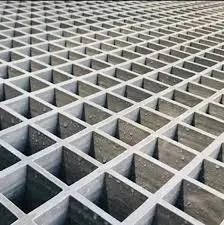
-
 Afrikaans
Afrikaans -
 Albanian
Albanian -
 Amharic
Amharic -
 Arabic
Arabic -
 Armenian
Armenian -
 Azerbaijani
Azerbaijani -
 Basque
Basque -
 Belarusian
Belarusian -
 Bengali
Bengali -
 Bosnian
Bosnian -
 Bulgarian
Bulgarian -
 Catalan
Catalan -
 Cebuano
Cebuano -
 China
China -
 China (Taiwan)
China (Taiwan) -
 Corsican
Corsican -
 Croatian
Croatian -
 Czech
Czech -
 Danish
Danish -
 Dutch
Dutch -
 English
English -
 Esperanto
Esperanto -
 Estonian
Estonian -
 Finnish
Finnish -
 French
French -
 Frisian
Frisian -
 Galician
Galician -
 Georgian
Georgian -
 German
German -
 Greek
Greek -
 Gujarati
Gujarati -
 Haitian Creole
Haitian Creole -
 hausa
hausa -
 hawaiian
hawaiian -
 Hebrew
Hebrew -
 Hindi
Hindi -
 Miao
Miao -
 Hungarian
Hungarian -
 Icelandic
Icelandic -
 igbo
igbo -
 Indonesian
Indonesian -
 irish
irish -
 Italian
Italian -
 Japanese
Japanese -
 Javanese
Javanese -
 Kannada
Kannada -
 kazakh
kazakh -
 Khmer
Khmer -
 Rwandese
Rwandese -
 Korean
Korean -
 Kurdish
Kurdish -
 Kyrgyz
Kyrgyz -
 Lao
Lao -
 Latin
Latin -
 Latvian
Latvian -
 Lithuanian
Lithuanian -
 Luxembourgish
Luxembourgish -
 Macedonian
Macedonian -
 Malgashi
Malgashi -
 Malay
Malay -
 Malayalam
Malayalam -
 Maltese
Maltese -
 Maori
Maori -
 Marathi
Marathi -
 Mongolian
Mongolian -
 Myanmar
Myanmar -
 Nepali
Nepali -
 Norwegian
Norwegian -
 Norwegian
Norwegian -
 Occitan
Occitan -
 Pashto
Pashto -
 Persian
Persian -
 Polish
Polish -
 Portuguese
Portuguese -
 Punjabi
Punjabi -
 Romanian
Romanian -
 Russian
Russian -
 Samoan
Samoan -
 Scottish Gaelic
Scottish Gaelic -
 Serbian
Serbian -
 Sesotho
Sesotho -
 Shona
Shona -
 Sindhi
Sindhi -
 Sinhala
Sinhala -
 Slovak
Slovak -
 Slovenian
Slovenian -
 Somali
Somali -
 Spanish
Spanish -
 Sundanese
Sundanese -
 Swahili
Swahili -
 Swedish
Swedish -
 Tagalog
Tagalog -
 Tajik
Tajik -
 Tamil
Tamil -
 Tatar
Tatar -
 Telugu
Telugu -
 Thai
Thai -
 Turkish
Turkish -
 Turkmen
Turkmen -
 Ukrainian
Ukrainian -
 Urdu
Urdu -
 Uighur
Uighur -
 Uzbek
Uzbek -
 Vietnamese
Vietnamese -
 Welsh
Welsh -
 Bantu
Bantu -
 Yiddish
Yiddish -
 Yoruba
Yoruba -
 Zulu
Zulu
fiberglass vessel
The Advantages of Fiberglass Vessels
In the world of boating and maritime industries, fiberglass vessels have become increasingly popular due to their durability, versatility, and cost-effectiveness. As a composite material made from a polymer resin and glass fibers, fiberglass provides an excellent alternative to traditional materials such as wood and metal. This article explores the various advantages of fiberglass vessels and why they have become a preferred choice for both recreational and commercial use.
One of the most significant advantages of fiberglass vessels is their resistance to corrosion. Unlike metal boats, which can rust over time, fiberglass does not succumb to the effects of saltwater, making it an ideal choice for marine environments. This inherent resistance to corrosion significantly extends the lifespan of the vessel, reducing maintenance costs and the need for frequent repairs. Furthermore, fiberglass can withstand the harsh conditions of the ocean, including UV radiation, which can degrade other materials over time.
Another notable benefit of fiberglass is its lightweight nature. Fiberglass vessels are generally lighter than their metal counterparts, which allows for better fuel efficiency and easier handling. A lightweight boat can achieve greater speeds with less power, making it an attractive option for both recreational and commercial fishermen looking to maximize their return on investment. Additionally, the lighter weight of fiberglass means that it is easier to transport and launch, providing further convenience for boat owners.
Fiberglass construction also lends itself to greater design flexibility. The molding process allows manufacturers to create a wide variety of shapes and sizes, accommodating different types of vessels for various purposes. Whether it’s a small fishing boat, a large yacht, or a cargo ship, fiberglass can be molded to meet specific design requirements and aesthetic preferences. This versatility has led to an explosion of innovative designs in the boating industry, appealing to a broad audience.
fiberglass vessel

Moreover, fiberglass vessels offer excellent insulation properties. The material helps to maintain temperature, making it ideal for refrigerated transports in commercial applications. For recreational users, this means a more comfortable boating experience, whether during hot summer days or cooler evenings on the water.
In terms of safety, fiberglass vessels are crafted to meet stringent safety standards. Their buoyant nature ensures that they remain afloat even when taking on water, which is a significant advantage in emergency situations. Additionally, fiberglass can be designed with built-in flotation features, enhancing the overall safety of the vessel.
Finally, the aesthetics of fiberglass are hard to overlook. Available in a variety of colors and finishes, fiberglass vessels can be customized to reflect personal style while offering a sleek, modern look. The smooth surface of fiberglass not only enhances its visual appeal but also contributes to improved performance through reduced drag in the water.
In conclusion, fiberglass vessels represent a modern solution for boating enthusiasts and commercial operators alike. With their resistance to corrosion, lightweight properties, design flexibility, insulating capabilities, safety features, and aesthetic appeal, they offer an array of advantages that traditional materials cannot match. As technology continues to advance, the popularity of fiberglass in marine applications is likely to grow, solidifying its place as an essential material in the future of maritime industries.









